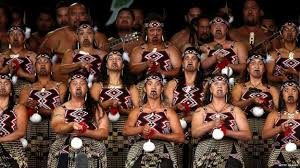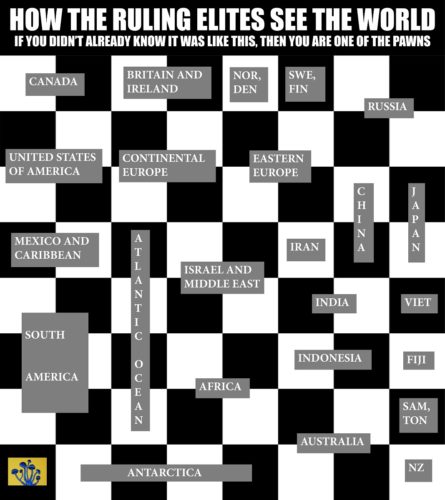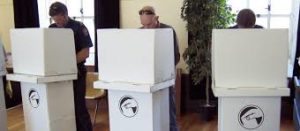
Most Kiwis are generally aware that the average Maori is doing it harder than the average Kiwi by a range of measures, but may not be sure precisely why. In any case, there is much more to the Maori experience than just that.
The correlation between median personal income and being Maori is a moderate -0.48. This is enough to tell us that the average Maori is considerably poorer than the average Kiwi. However, this correlation is not quite as meaningful as it might appear on the surface.
The correlation between median age and being Maori is even stronger, at -0.63, and because there is a mildly significant positive correlation of 0.27 between median age and median personal income it is fair to conclude that Maori are poorer than average, to a small extent, because they are younger than average.
There is a fair amount of cynicism among Maoris regarding Paheka religions. This is reflected in the fact that being Maori has a significant negative correlation with being a Christian, which is -0.37. This will surprise those any who expect that Maoris are like Pacific Islanders in all regards. The correlation between being a Pacific Islander and being a Christian is a moderately strong 0.46, so they are very different to the Maori in that sense.
There is no significant correlation between being Maori and being Anglican – this is 0.02. Being Maori has significant negative correlations with practicising a variety of religious traditions: with being a Catholic it is -0.28, with being Presbytarian it is -0.40 and with being Buddhist it is -0.45.
Even more surprising to some is the strong positive correlation between being Maori and being a Mormon (0.54), as well as the correlation between being Maori and following Spiritualism and New Age religions, which was a mildly significant 0.24. In this latter correlation the Maori share something exclusively with the Paheka, who also have an interest in these traditions, unlike Pacific Islanders and Asians.
The explanation for the strong negative correlation between being Maori and net personal income becomes obvious if one looks at the correlations between being Maori and maximum educational achievement.
Being Maori had a moderate positive correlation with being in all three groups with the poorest education. Being Maori had a correlation of 0.57 with a Level 2 education, of 0.55 with a Level 1 education, and of 0.67 with no qualifications at all.
Even worse for the purposes of making a good income, being Maori had a significant negative correlation with having any of the university degrees. With having a Bachelor’s degree the correlation was -0.45, with having an Honour’s degree it was -0.46, with having a Master’s degree it was -0.45 and with having a doctorate it was -0.41.
It is known that Maori men in particular have the lowest life expectancy of any of the major population groups in New Zealand. Few would dare guess that things are so bad for Maori men that there is a significant correlation between being Maori and being female – this is 0.31.
Related to this unusual death rate, there is one pattern that stands out when it comes to the demographics of Maori. Although Maori are only doing moderately worse than the Kiwi average when it comes to most measures of social health and wellbeing, they still comprise the bulk of the Kiwis at the very bottom of the ladder, who have it hardest of all.
There is a correlation of 0.91 between being Maori and being on the unemployment benefit and a correlation of 0.77 between being Maori and being on the invalid’s benefit. There is also a correlation of 0.92 between being Maori and being a regular smoker and a correlation of 0.79 between being Maori and being a solo parent.
These are very strong correlations and suggest that much of the worst social devastation has happened to Maoris.
There is a significant positive correlation between being Maori and all of the income bands from Loss or No Income up to $50K. There is a significant negative one between being Maori and the three income bands above $70K. One can guess from this that working class industries and occupations are the general trend.
The significant positive correlations between being Maori and working in a particular industry are 0.47 for working in transport, postal and warehousing, 0.44 for working in manufacturing, 0.43 for working in education and training, 0.42 for workign in electricity, gas, water and waste services, 0.38 with working in administration and support services, 0.32 for working in healthcare and social assistance and 0.31 for working in construction.
There are only two industries with a significant negative correlation with being Maori: professional, scientific and technical services at -0.33 and financial and insurance services at -0.26. The former of these is not surprising considering the unusually low representation of Maori on the higher rungs of the education ladder.
True to the long-held stereotype of “Maori being good on guitars and bulldozers”, there is a very strong correlation between being Maori and working as a machinery operator or driver – this is 0.66. There is also a strong correlation of 0.62 between being Maori and being a labourer. The strongest correlation between being Maori and any occupation, however, is with community and personal services, which is 0.72.
Predictably, there is a strong positive correlation between being Maori and having been born in New Zealand – this is 0.70. This may not even be as strong as some might predict, but it ought to be kept in mind that the vast majority of New Zealand Europeans are native born and that there are large Maori populations in Sydney, Melbourne and Brisbane.
*
This article is an excerpt from Understanding New Zealand, by Dan McGlashan, published by VJM Publishing in the winter of 2017.



